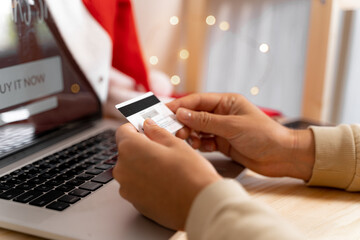

Protecting Your Online Banking Accounts; Tips to Keep Your Funds Safe
The world of banking brings convenience that lets you manage your money from anywhere anytime.. With this ease comes the risk of falling victim, to banking fraud. Criminals are always finding ways to exploit weaknesses and steal information. To safeguard your accounts and financial details it's essential to put in place security measures. This detailed guide offers strategies to help you prevent banking fraud and protect your accounts.
Understanding the Threat of Online Banking Fraud
Online banking fraud refers to using internet based tactics to steal money or sensitive data from individuals and financial institutions. Common forms of banking fraud include;
1. Phishing; Scammers send emails or messages pretending to be financial entities in order to trick people into disclosing personal information.
2. Malware; Malicious software is deployed to illicitly access computers and pilfer data like login credentials and financial information.
3. Man in the Middle Attacks; Cybercriminals intercept communication between users and banks with the aim of stealing information or manipulating transactions.
4. Credential Stuffing; Attackers utilize stolen login details, from breaches as a means to access bank accounts.
SIM Swapping; Scammers deceive carriers into transferring a persons phone number to a SIM card to get past two factor authentication (2FA).
Ways to Stop Online Banking Fraud
Implementing security measures and staying alert can greatly lower the risk of banking fraud. Here are some important steps to protect your accounts;
1. Use Secure and Unique Passwords
Having unique passwords for your banking accounts is essential, for preventing unauthorized access.
Tips for Passwords;
Length and Complexity; Create passwords that're least 12 characters long and include a combination of uppercase letters, lowercase letters, numbers and special characters.
Avoid Common Passwords; Steer of using predictable passwords like "password123" or "123456."
Unique Passwords; Use passwords for each account you have to prevent one breach from compromising multiple accounts.
Password Manager; Think about using a password manager to generate and securely store passwords.
2. Activate Two Factor Authentication (2FA)
Two factor authentication provides a layer of security by requiring a form of verification along, with your password.Make sure the website you're visiting has that padlock icon in the address bar indicating its using HTTPS for a connection.
Safeguard Your Devices
It's crucial to protect your devices to keep your banking details safe, from malware and unauthorized access.
Tips for Device Security;
Install Antivirus Software; Make sure you have antivirus and anti malware software installed and keep them updated on all your devices.
Keep Software Up to Date; Stay on top of updates for your operating system, browsers and other software to shield against vulnerabilities.
Activate Firewalls; Enhance security by turning on firewalls for an added layer of protection against entry.
Steer Clear of Public Wi Fi When Banking
Public Wi Fi networks are often less secure making them targets for cybercriminals. It's best to avoid using Wi Fi for any banking activities.
Tips for Secure Connectivity;
Use Mobile Data; Opt for using your mobile data connection of public Wi Fi when conducting banking transactions.
Utilize VPNs; If you must use Wi Fi consider using a Virtual Private Network (VPN) to encrypt your internet connection and safeguard your data.
Exercise Caution with Social Engineering
Stay alert, against social engineering tactics that aim to trick individuals into disclosing information. Be wary of calls, messages or interactions seeking details.
Tips, for Social Engineering;
1. Confirm Requests; Make sure to verify the identity of individuals asking for information by contacting the institution through trusted contact details.
2. Guard Your Personal Information; Refrain from sharing details over the phone or online unless you are confident about the legitimacy of the recipient.
3. Opt for Secure Payment Methods
Utilizing payment options can safeguard your data when engaging in online transactions.
Payment Security Suggestions;
Choose Credit Cards; Prefer using credit cards of debit cards for purchases as they provide enhanced protection against fraud.
Verify Payment Gateways; Confirm that online vendors employ secure payment gateways and display security certifications from reputable sources.
Educate Yourself on Online Banking Fraud
Keeping yourself updated on online banking fraud tactics and preventive measures is crucial for your safety.
Educational Materials;
Bank Resources; Many banks offer resources and materials focusing on banking security.
Explore Online Guides; Refer to cybersecurity guides and articles related to preventing online banking fraud.
Participate in Workshops and Webinars; Engage in workshops. Webinars dedicated, to cybersecurity and financial security awareness.
Promptly Report Suspected Fraud
If you believe you have fallen victim to banking fraud report it without delay to mitigate harm.
Tips, for Handling Fraudulent Activity;
Get in Touch with Your Bank; Reach out to your bank to lock your accounts and look into the fraud.
Update Passwords; Make sure to change the passwords for all your accounts to prevent any unauthorized access.
Inform the Authorities; Report the activity to the authorities, such as the Federal Trade Commission (FTC), in the United States or your local law enforcement.
In Conclusion
Being a victim of banking fraud can seriously jeopardize your security. However by setting up security measures and staying alert you can safeguard your accounts and personal information. Create unique passwords activate two factor authentication keep an eye on your accounts regularly and be cautious when dealing with emails and links. Protect your devices refrain from using Wi Fi for banking purposes and be cautious of social engineering tactics. Stay updated on online banking fraud schemes. Promptly report any suspicious behavior. By adhering to these strategies you can make use of banking services conveniently while shielding yourself from fraud risks.